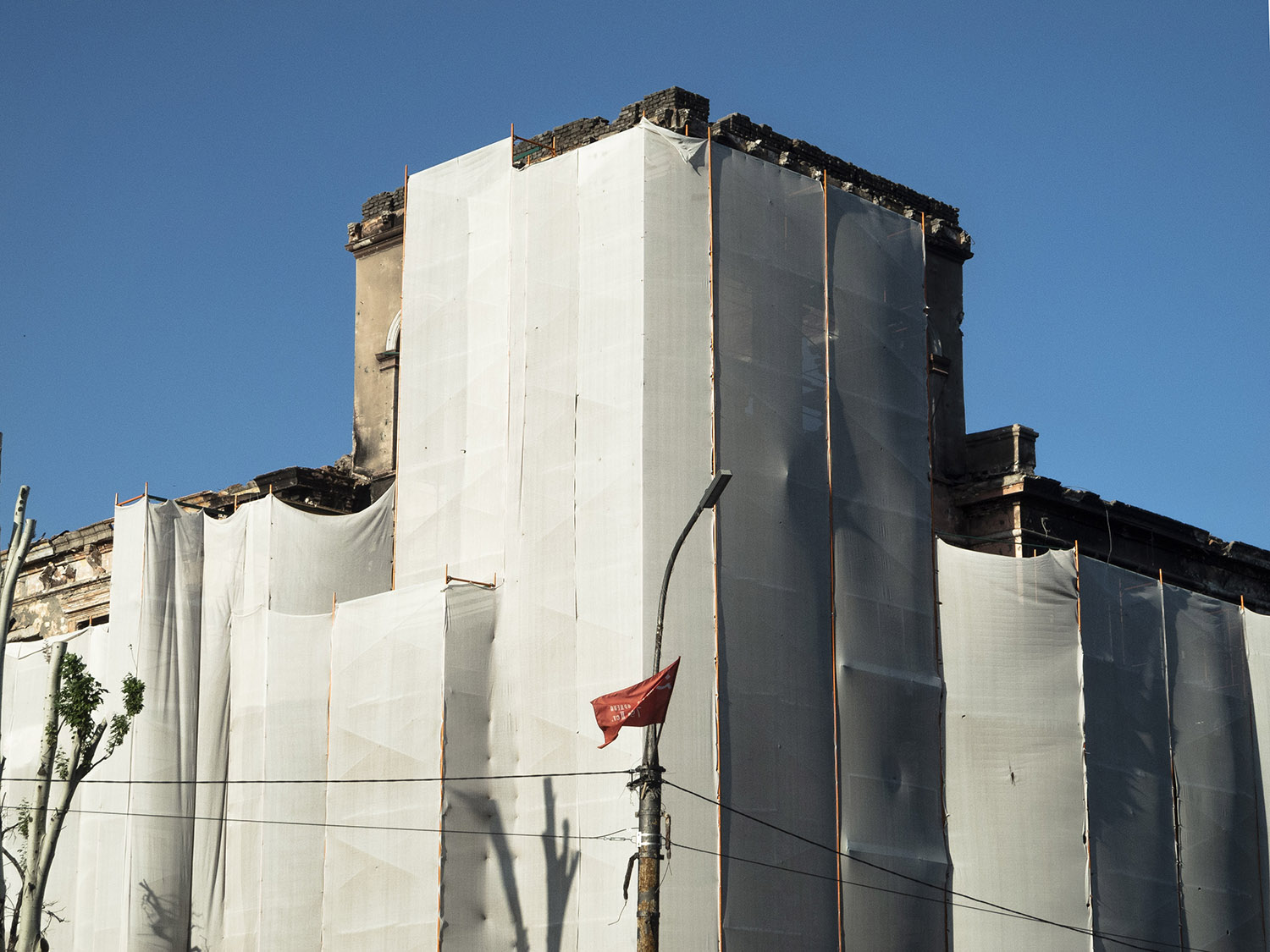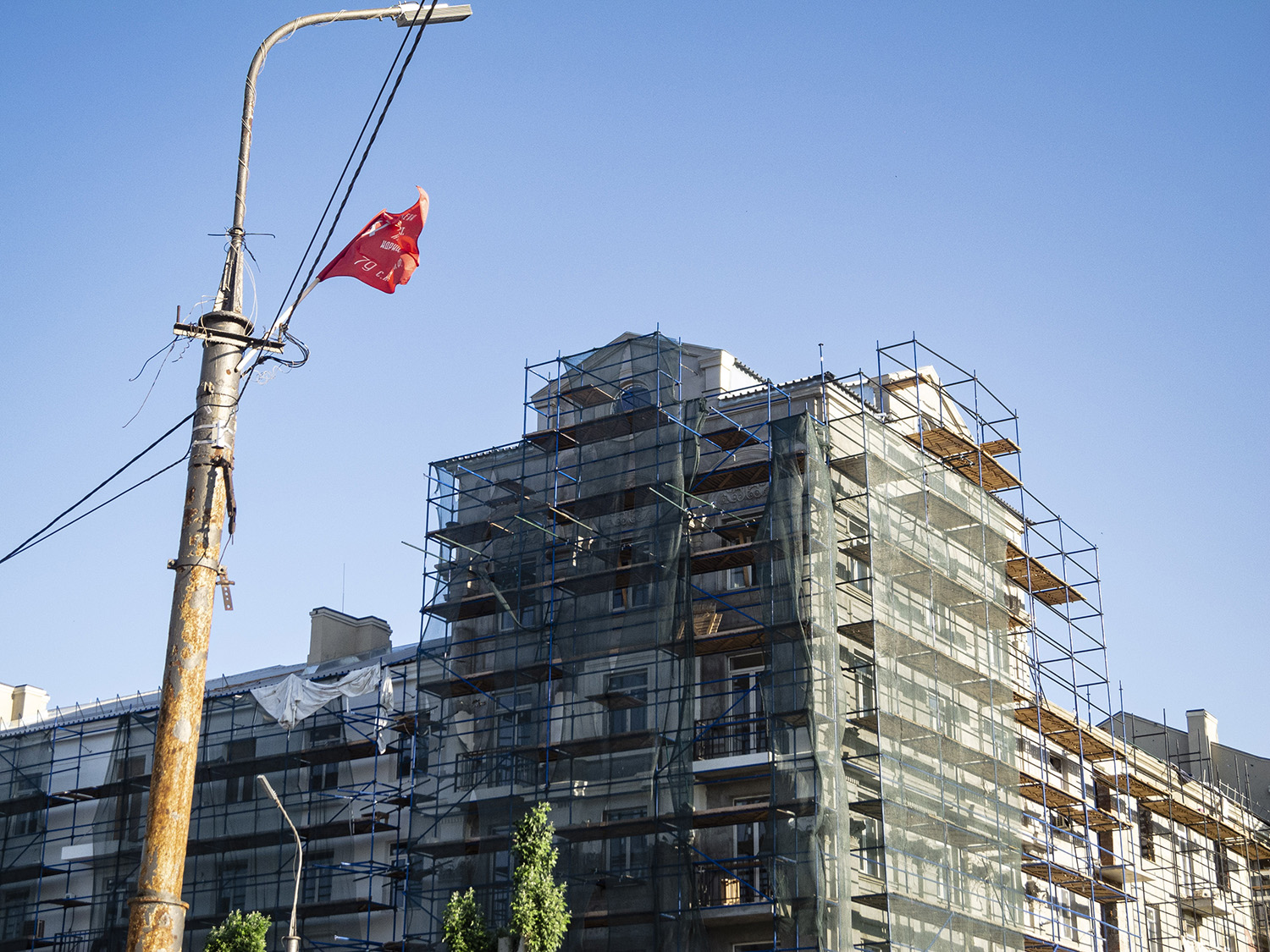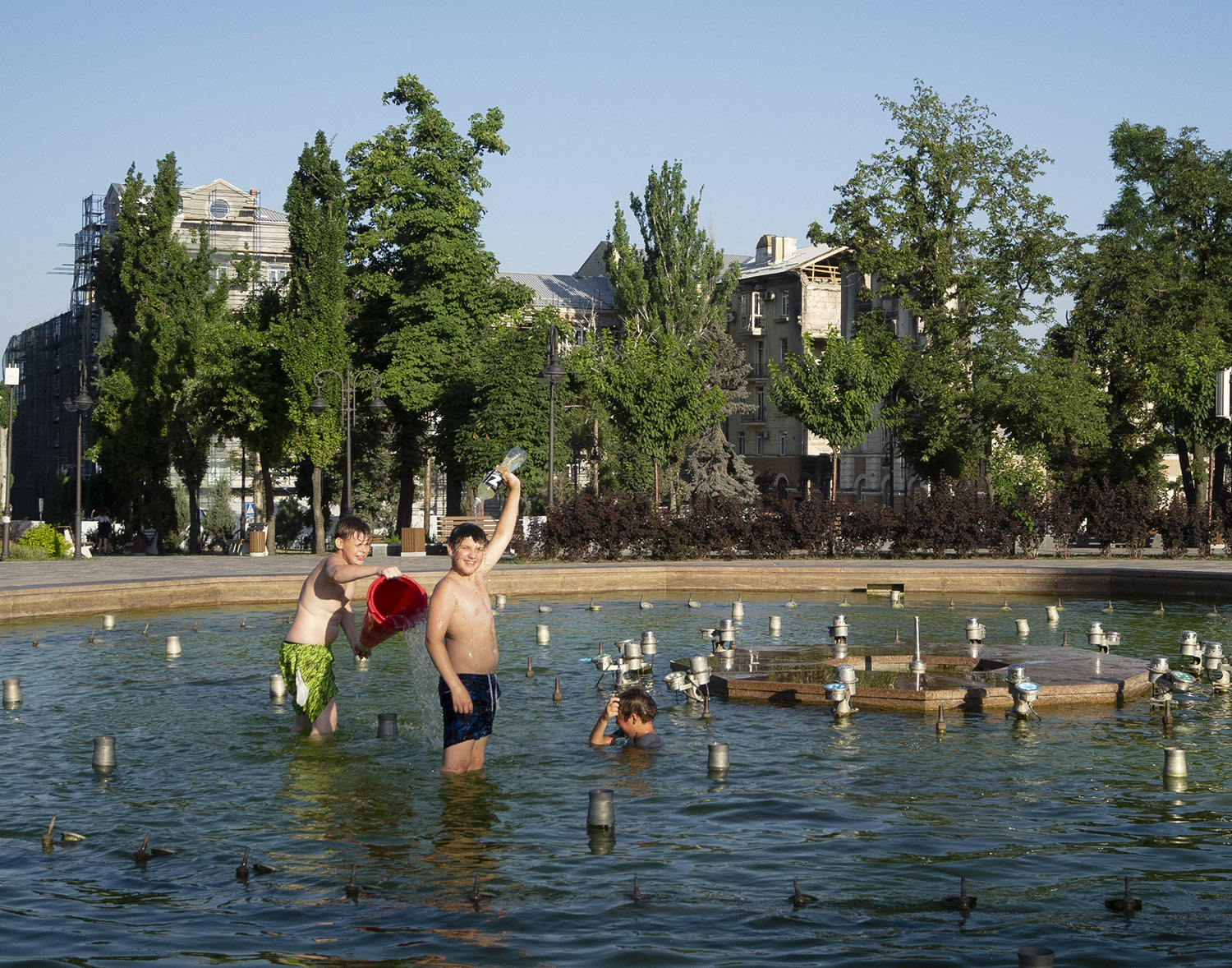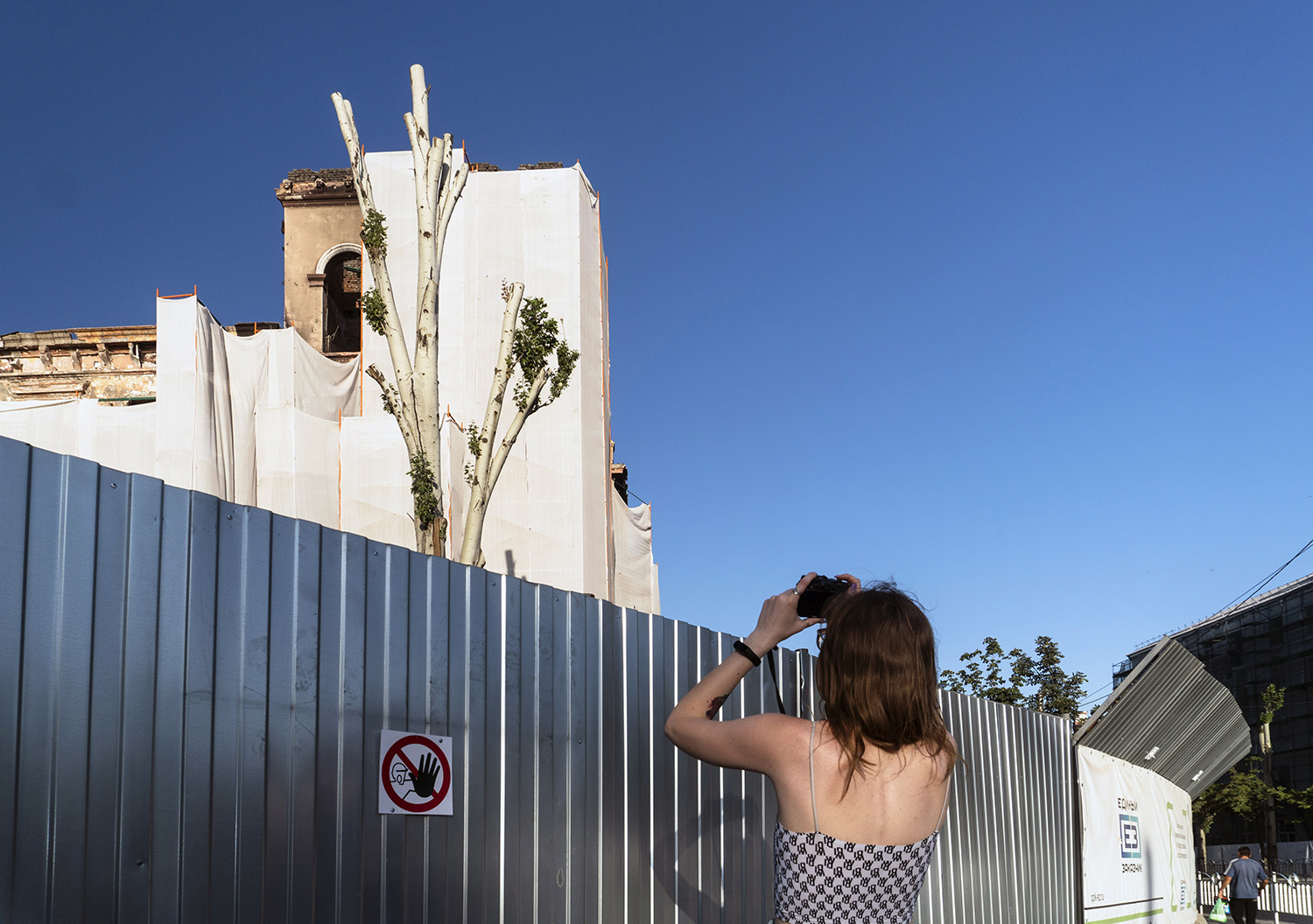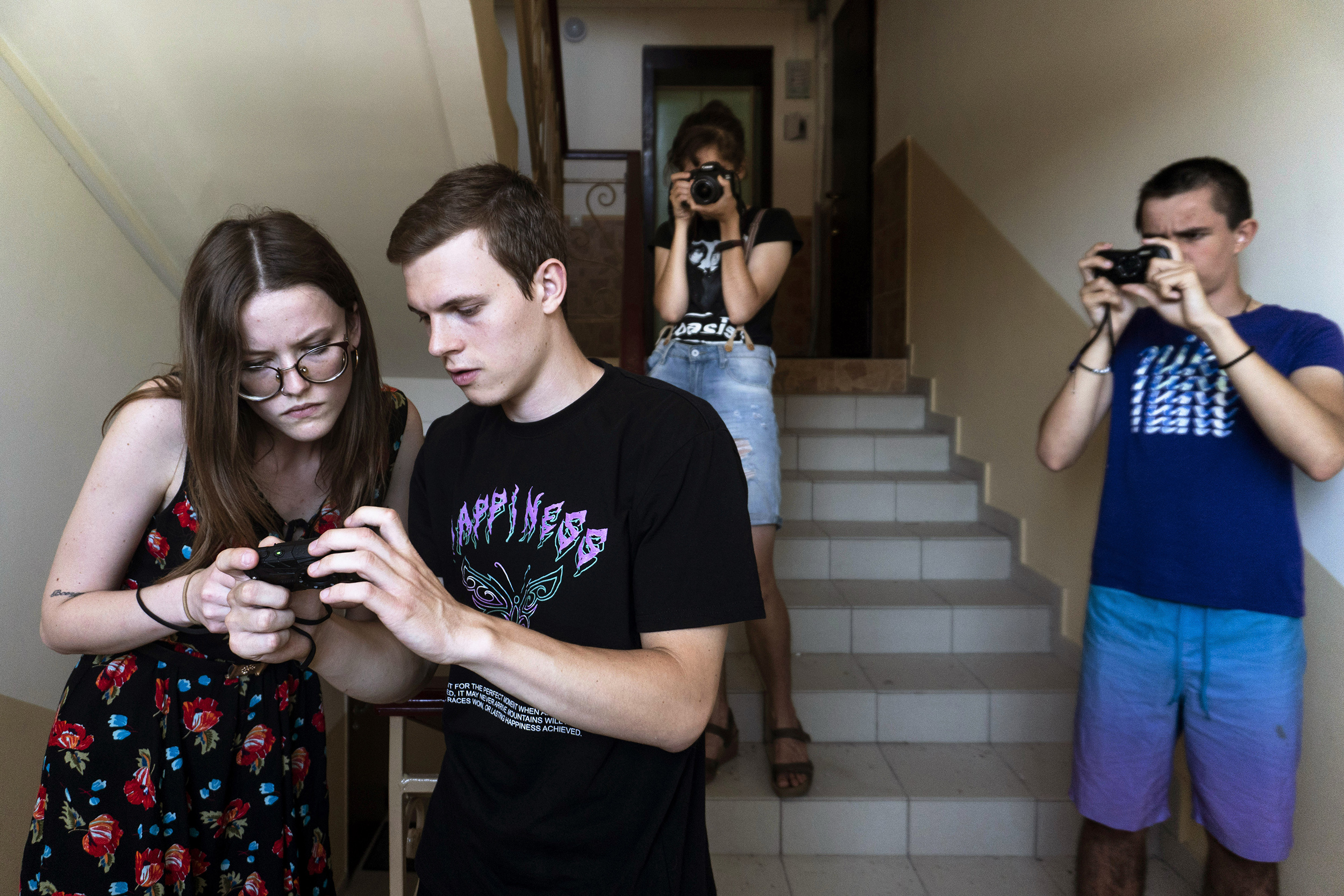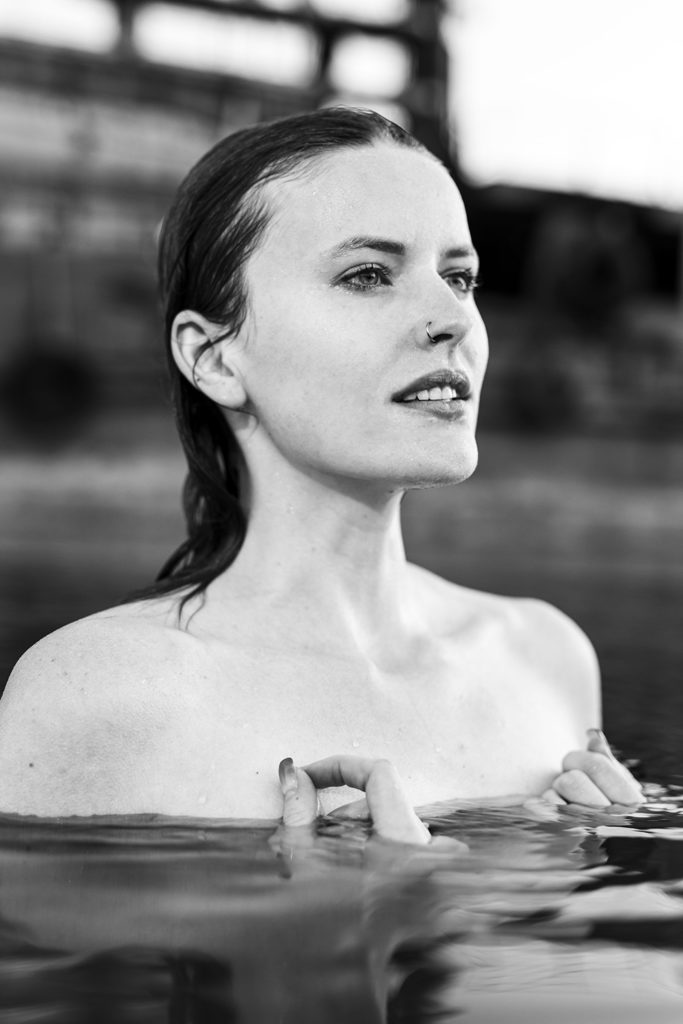
EN
The result of a new recruitment drive for young participants, Liudmila Lissovaya, 25, tells us who she is and how she has lived since the Russian invasion.
“I was born in Marioupol. I had to move to another town when I was ten.
After school, I went to medical school to study.
In 2018, after three years studying medicine, I came back to Marioupol to work as a nurse.
I live alone with my father because the war has taken us away from my mother and sister.
During the blockade, I was at home with my father. He and I didn’t run away or hide, because we lived by the principle “If fate wants, it will catch us”.
There was no light, no gas, no water, no electricity. We lived, as they say, in Spartan conditions. We cooked over a wood fire.
The most distressing thing for me was counting the bombs falling and worrying about whether there were any casualties.
I sometimes bumped into dead bodies as I went out to buy a few groceries.
That will always be unforgettable, in the worst sense of the word.
It’s tragic that we weren’t able to avoid such destruction and civilian casualties.
I think that all the people of Marioupol experienced extremely difficult times during the winter and spring of 2022.
The lack of normal social relations, stable incomes and means of subsistence hit everyone who remained here during the blockade hard.
In the early days after the war, I decided that I wanted to help people, so I volunteered.
We took a census of all the people who couldn’t look after themselves, recorded the burials and forwarded the data to the Ministry for Emergency Situations, unloaded the humanitarian deliveries and ensured that they were properly distributed. Together with the Ministry of Emergency Situations, we organised the supply of drinking water, as summer was approaching and it was very hot.
We cleared away the rubble, cleaned up the city and recovered valuable objects from the museums. We enlisted the help of investors and organised children’s festivals to distract the children of Mariupol from the torments of this chaotic life.
At certain points in the town we have provided medical care, distributed medicines and helped out with pets.
As life returned to normal, our help was no longer needed and all the volunteers went back to their original tasks.
I’d like Marioupol to return to its splendour in the near future, so that all the destroyed houses can be rebuilt, so that people have somewhere to live and work, and so that they can finally stop being afraid.
I came back to Marioupol seven years ago and I didn’t flee during the worst of the hostilities.
I’m not going to give up my town now.
On the contrary, I want to contribute in any way I can to its reconstruction.
FR
Issue de nouveaux recrutements de jeunes participants, Lioudmila Lissovaya, 25 ans, nous raconte qui elle est et comment elle vécut depuis l’invasion russe.
« Je suis née à Marioupol. J’ai dû déménager dans une autre ville à l’âge de dix ans.
Après l’école, je suis allée à la faculté de médecine pour y étudier.
En 2018, après trois ans d’études dans le domaine médical, je suis revenue vivre à Marioupol pour y travailler comme infirmière.
Je vis seule avec mon père car la guerre nous a éloigné de ma mère et de ma sœur.
Pendant le blocus, j’étais à la maison avec mon père. Lui et moi ne nous sommes ni enfuis, ni cachés, car nous vivions selon le principe “Si le destin le veut, il nous rattrapera”.
Il n’y avait pas de lumière, pas de gaz, pas d’eau, pas de réseau. Nous vivions, comme on dit, dans des conditions spartiates. Nous faisions la cuisine avec du feu de bois.
La chose la plus angoissante pour moi était de compter les chutes de bombes et de m’inquiéter de savoir s’il y a des victimes.
Il m’est arrivé d’heurter des cadavres en sortant faire quelques provisions.
Cela restera à jamais inoubliable, dans son sens le pire.
Il est dramatique que nous n’ayons pas pu éviter de telles destructions et de telles pertes civiles.
Je pense que tous les habitants de Marioupol ont vécu des moments extrêmement difficiles au cours de l’hiver et du printemps 2022.
L’absence de relation sociale normale, de revenus stables et de moyens de subsistance a affecté durement chacun de ceux restés vivre ici pendant le blocus.
Dans les premiers temps de l’après-guerre, j’ai décidé que je voulais aider les gens, et je me suis donc portée volontaire.
Nous avons recensé toutes les personnes qui ne pouvaient pas s’occuper d’elles-mêmes, enregistré les enterrements et transmis ces données au ministère des situations d’urgence, déchargé les livraisons humanitaires et nous avons assuré sa bonne distribution. Nous avons organisé avec le ministère des situations d’urgence l’approvisionnement des lieux en eau potable, car l’été approchait et il faisait très chaud.
Nous avons déblayé les décombres, nettoyé la ville, récupéré les objets de valeur des musées. Nous avons sollicité l’aide d’investisseurs et organisé des festivals pour enfants afin de détourner les enfants de Mariupol des tourments de cette vie chaotique.
À certains points de la ville nous avons dispensé des soins médicaux, distribué des médicaments et sommes venus en aide aux animaux de compagnie.
Parce que la vie prend un cours normal, notre aide n’a plus été nécessaire et tous les bénévoles sont retournés à leurs premières occupations.
J’aimerais que Marioupol retrouve sa splendeur dans un avenir proche, que toutes les maisons détruites soient reconstruites, que les gens aient un endroit où vivre et travailler et qu’ils cessent enfin d’avoir peur.
Je suis revenue à Marioupol il y a sept ans et je n’ai pas fui au pire des hostilités.
Je ne vais pas lâcher ma ville maintenant.
Au contraire, je veux contribuer de quelque manière que ce soit à sa reconstruction.
RU
25-летняя Людмила Лиссовая, ставшая результатом нового набора молодых участников, рассказывает о себе и о том, как она живет после российского вторжения.
“Я родилась в Мариуполе. В десять лет мне пришлось переехать в другой город.
После школы я поступила учиться в медицинский колледж.
В 2018 году, после трех лет обучения медицине, я вернулась в Мариуполь и стала работать медсестрой.
Живу вдвоем с отцом, потому что война отняла нас у мамы и сестры.
Во время блокады я была дома с отцом. Мы с ним не убегали и не прятались, потому что жили по принципу: “Если судьбе будет угодно, она нас поймает”.
Не было ни света, ни газа, ни воды, ни электричества. Мы жили, как говорится, в спартанских условиях. Готовили на дровах.
Самое мучительное для меня было считать падающие бомбы и переживать, есть ли жертвы.
Иногда, выходя за продуктами, я натыкался на трупы.
Это навсегда останется незабываемым, в самом плохом смысле этого слова.
Трагично, что нам не удалось избежать таких разрушений и жертв среди мирного населения.
Думаю, что все жители Мариуполя пережили зимой и весной 2022 года крайне тяжелые времена.
Отсутствие нормальных социальных отношений, стабильных доходов и средств к существованию тяжело ударило по всем, кто оставался здесь во время блокады.
В первые дни после войны я решил, что хочу помогать людям, и записался добровольцем.
Мы проводили перепись всех людей, которые не могли за собой ухаживать, фиксировали захоронения и передавали данные в МЧС, разгружали гуманитарные грузы и следили за их правильным распределением. Совместно с МЧС мы организовали подвоз питьевой воды, так как приближалось лето и было очень жарко.
Мы расчищали завалы, приводили в порядок город, извлекали из музеев ценные экспонаты. Мы привлекли инвесторов и организовали детские праздники, чтобы отвлечь мариупольских детей от мук этой хаотичной жизни.
В некоторых точках города мы оказывали медицинскую помощь, раздавали лекарства, помогали с домашними животными.
Когда жизнь вернулась в нормальное русло, наша помощь стала не нужна, и все волонтеры вернулись к своим прежним задачам.
Мне бы хотелось, чтобы в ближайшем будущем Мариуполь вернулся к своему великолепию, чтобы все разрушенные дома были восстановлены, чтобы людям было где жить и работать, чтобы они наконец перестали бояться.
Я вернулся в Мариуполь семь лет назад и не бежал во время самых тяжелых военных действий.
И сейчас я не собираюсь отказываться от своего города.
Наоборот, я хочу внести посильный вклад в его восстановление.
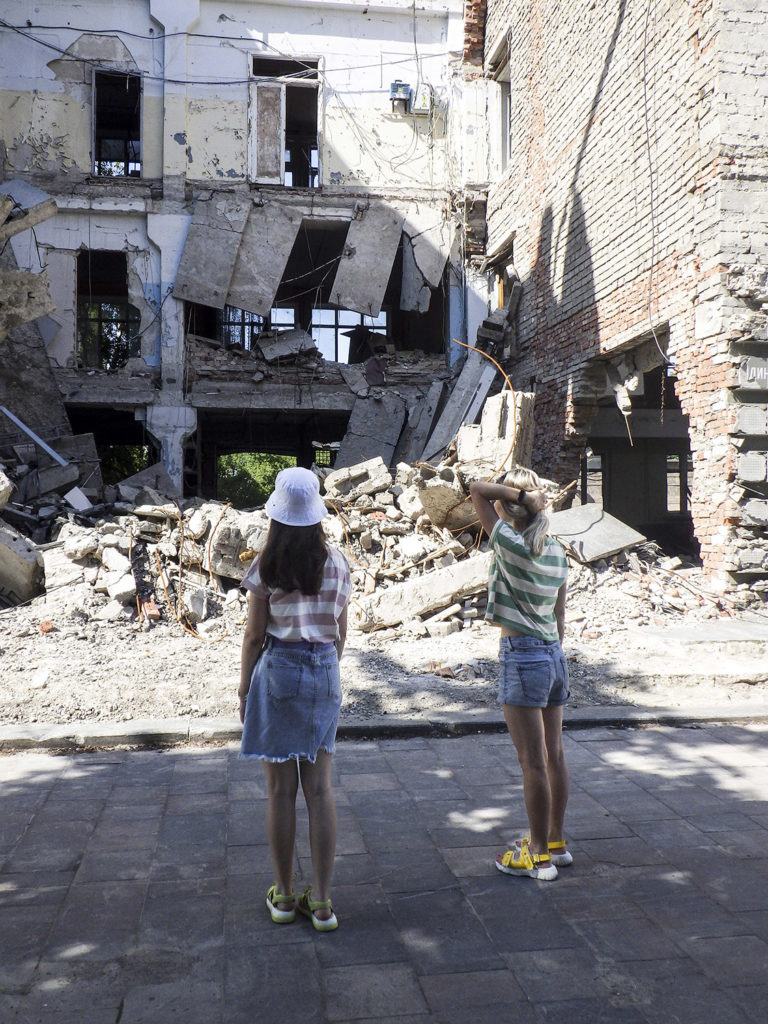
L’ancienne Maison des Télécommunications.
Полностью уничтоженный дом связи, расположенный на проспекте Мира (бывший проспект Ленина).
